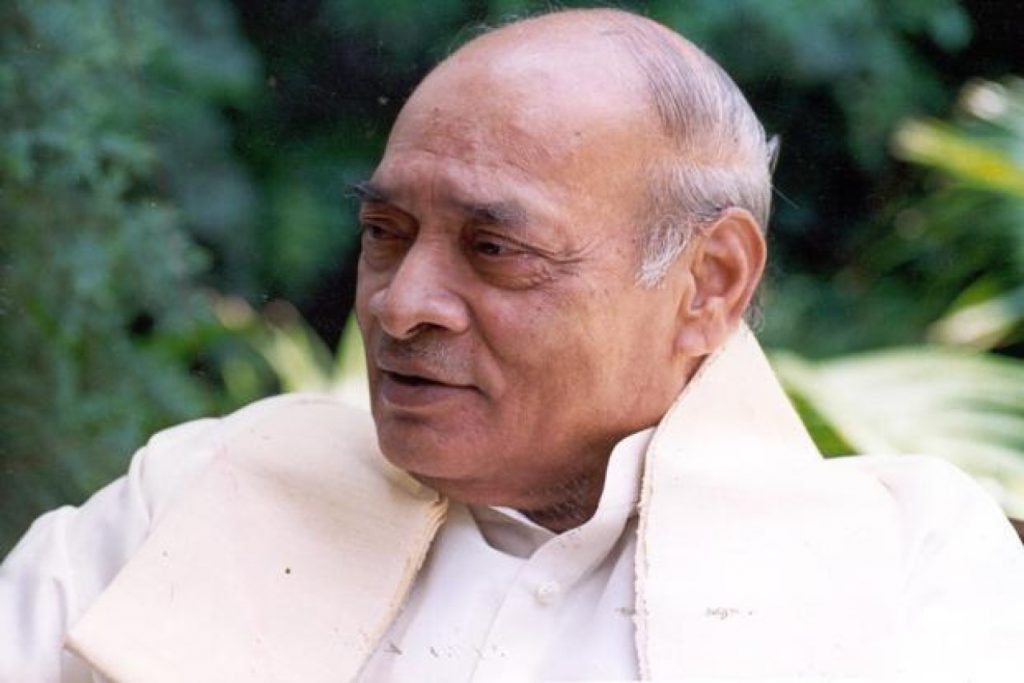Anita Saluja
PV Narasimha Rao never dreamt to be the Prime Minister, as he was no lobbyist and did not have the instincts in him to side-step anybody. In fact, after the assassination of Rajiv Gandhi, he had packed his bags and returned to his home state, the undivided Andhra Pradesh. He was called back and given the responsibility of leading the nation as Prime Minister. As a young journalist, I used to meet him often.
Soon after becoming the Prime Minister, Rao spelt out his plans to transform the nation by liberalising the economy. His Liberalisation-Privatisation-Globalisation programme transformed the Indian economy, as never before. As PM, Rao led the nation for five years, 1991-96, taking it forward on all the fronts, mainly on the economic and the foreign affairs. Yet, he remains the most underrated PM due to his strained relations with Congress president Sonia Gandhi.
Rao led the party and the nation on his own terms. Perhaps, this was the reason why Manmohan Singh preferred to kow-tow to Sonia Gandhi when he became PM. Rao was nobody’s man and preferred to have no coterie of his own.
This is the birth centenary year of Rao. While his contributions in unleashing economic reforms will always be remembered, he has countless feathers in his cap. It was during his tenure that the Constitutional 73rd and 74th Amendment Bills were passed in Parliament. They not only conferred Constitutional status on panchayats and urban local bodies, but also provided one-third reservation for women in these bodies. Amid raging social unrest on Mandal Commission recommendations, Rao brought about a peaceful resolution by making the first appointment under reservation formula. Punjab was on the boil due to militancy. However, with careful political and administrative management, Rao brought peace back in Punjab. In the insurgency-hit Jammu & Kashmir, Rao worked hard restoring normalcy. Soon after the Babri Masjid demolition, there was the siege of the Hazratbal Shrine in Srinagar, in 1993. Rao succeeded in bringing about a bloodless, peaceful resolution.
It was during Narasimha Rao’s tenure that diplomatic relations were established with Israel. Rao had prior consultations with Palestine leader Yasser Arafat over a breakfast meeting, where he took the PLO leader into confidence on his proposed move. Arafat welcomed it, as he felt India could act as a bridge between Palestine and Israel. Then Rao went ahead and signed the file.
The Look East Policy of Rao was a philosophical outreach. It pointed to the World, particularly the West, to the rich religious, cultural civilisational traditions in the East. Apart from the strategic and economic ties between India and the Association of South-East Asian Nations, the two share the Buddhist and the Ramayana Connect.
When Indira Gandhi was pushing for Land Reforms at the national level, it was Rao who implemented it in right earnest as the Andhra Pradesh Agricultural Land Ceiling Act, 1973, when he was Chief Minister of the state. This revolutionary measure, in one go, dismantled the Jagirdari-Zamindari structures, empowering the rural landless poor through the redistribution of the surplus land. The then Odisha Chief Minister Nandini Satpathy borrowed a copy of the AP Agricultural Land Ceiling Act from her Andhra Pradesh counterpart, for replication in Odisha.
The only blot in Rao’s tenure was the demolition of Babri Masjid, but the real question is whether Rao was really culpable? There was a history to the Babri Masjid issue even before he took office on June 21, 1991. The doors of the Masjid were opened for the Hindus to offer prayers to Lord Ram Lalla idols in 1986. Under Supreme Court orders, the Shilanyas was performed in 1989. The matter was already sub-judice, with the Supreme Court fully seized of the matter. According to him, he took all the steps required to ensure that the mishap was prevented, but failed owing to the belligerence of the Saffron brigade.
A month prior to the demolition, in November, 1992, Rao moved the Supreme Court with a plea to appoint the Centre as the Receiver for Babri Masjid, which would have given him the locus-standi to deploy police and para-military forces to save the mosque. But, on December 2, four days prior to the demolition, the petition was dismissed by the apex court. The rest, as they say, is history.
A multi-faceted personality, Rao had a literary flair. A dazzling polyglot, he was fluent in several Indian and European languages.
